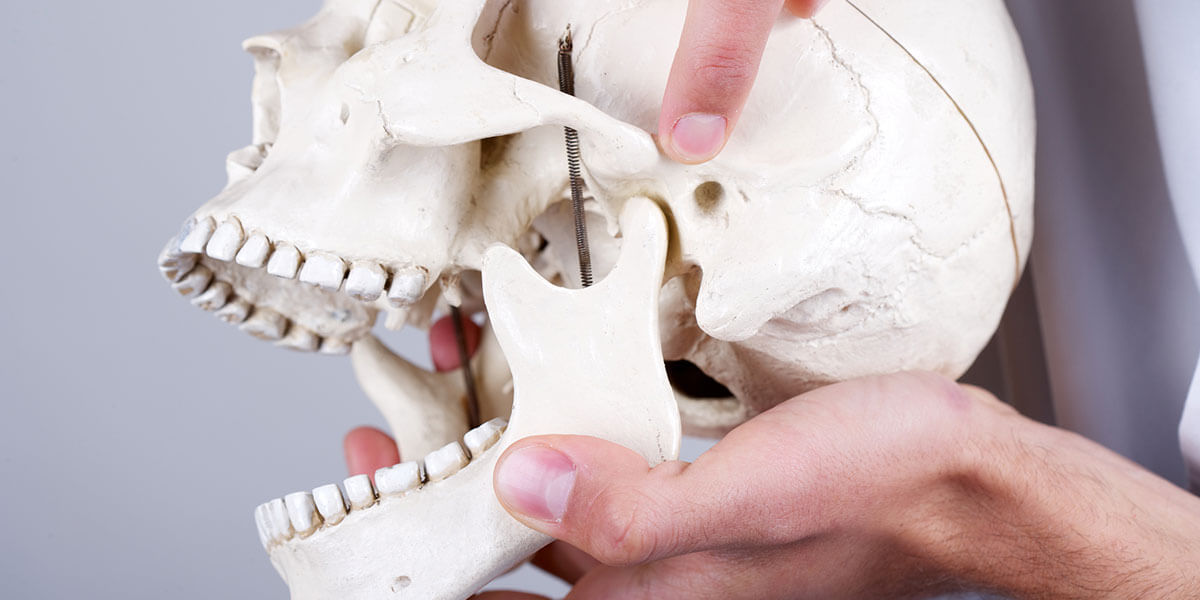TMJ Treatment in Maywood, Wayne & Franklin Lakes, NJ

Are you experiencing TMJ pain? A specialist at Costello Oral Surgery Associates provides treatment options to patients in Maywood, Wayne and Franklin Lakes. Contact us to schedule an appointment at one of our 3 New Jersey offices.
The temporomandibular joint (TMJ) connects the jawbone to the skull. TMJ disorders often cause discomfort in the cheek, jaw, or ear areas and can affect normal jaw function.
In less severe cases TMJ disorders can be treated with self-managed care (eating soft foods, using ice packs, avoiding extreme jaw movement) or nonsurgical treatments (anti-inflammatory medications, Botox injections, or stabilization splints). In more severe cases, surgical treatments (jaw joint replacements) may be necessary.
TMJ conditions fall into three main categories:
- Myofacial pain - discomfort or pain in the muscles that control jaw function (grinding teeth can result in this type of TMJ disorder)
- Internal derangement of the joint - a possible indicator of a displaced disc, dislocated jaw, or injury to the condyle
- Arthritis - a degenerative inflammatory disorder
Signs and symptoms of TMJ disorders are frequently intensified by stress and can include:
- Headaches
- Soreness in the cheek or jaw area
- Pain in or around the ears
- Facial pain
- Tight jaws
- Popping or clicking sounds when opening mouth
- Locking of the jaw
- Difficulty chewing
Contact us to schedule an appointment with a TMJ Specialist.
TMJ Frequently Asked Questions
How much does TMJ treatment cost?
When it comes to the cost of TMJ treatment, fees vary depending upon the nature of your care--whether surgical or nonsurgical treatment is appropriate. Most insurance carriers do not cover TMJ services but some do.
What will happen if TMJ disease is not treated?
Without treatment, symptoms of TMD can increase, leading to excruciating levels of pain that may require medical intervention. Other Medical Conditions: Patients with an untreated TMJ disorder may experience debilitating neck or jaw pain, depression, malnutrition, and even resulting in eating disorders as a result of their pain.
What is the best treatment for TMJ?
Over-the-counter pain relievers may help relieve TMJ pain. Muscle relaxers and other classes of medications may be prescribed for severe pain. Doctors may also recommend: mouth guards to prevent teeth grinding and jaw clenching.
What kind of doctor do I see for TMJ pain?
Your doctor or dentist may refer you to an oral and maxillofacial surgeon, an otolaryngologist (also called an ear, nose, and throat doctor or ENT specialist), or a dentist specializing in jaw disorders (prosthodontist) for evaluation and treatment.
Is TMJ treated by a doctor or oral and maxillofacial surgeon?
You'll probably first talk about your TMJ symptoms with your family doctor or dentist. If preliminary treatments don't provide enough relief, you may be referred to an oral and maxillofacial surgeon because they specialize in care for this region of the body and supremely understand the mechanics of occlusion and muscles of mastication best.
What will an oral and maxillofacial surgeon do for TMJ?
During your consultation with a Board-Certified oral and maxillofacial surgeon, like Dr. Michael Costello, a thorough medical history along with an evaluation of your oral-facial anatomy and envelopes of function, will help formulate whether a nonsurgical or surgical approach to your pain and dysfunction is appropriate. Advanced imaging such as MRI or CT Scan may be ordered to aid in diagnosis. The following treatments may be advised: warm compresses, anti-inflammatory medications, soft diet, a night guard or bite plate to thwart the damaging effects of parafunctional habits like clenching or grinding.
Can TMJ change your face?
TMJ can contribute to changes in your face as your muscles are overworked. The natural aesthetic of the face can be altered if teeth shift, if bone loss occurs, or if the bite (occlusion) and jaws are not aligned properly.
Contact us to schedule an appointment.
